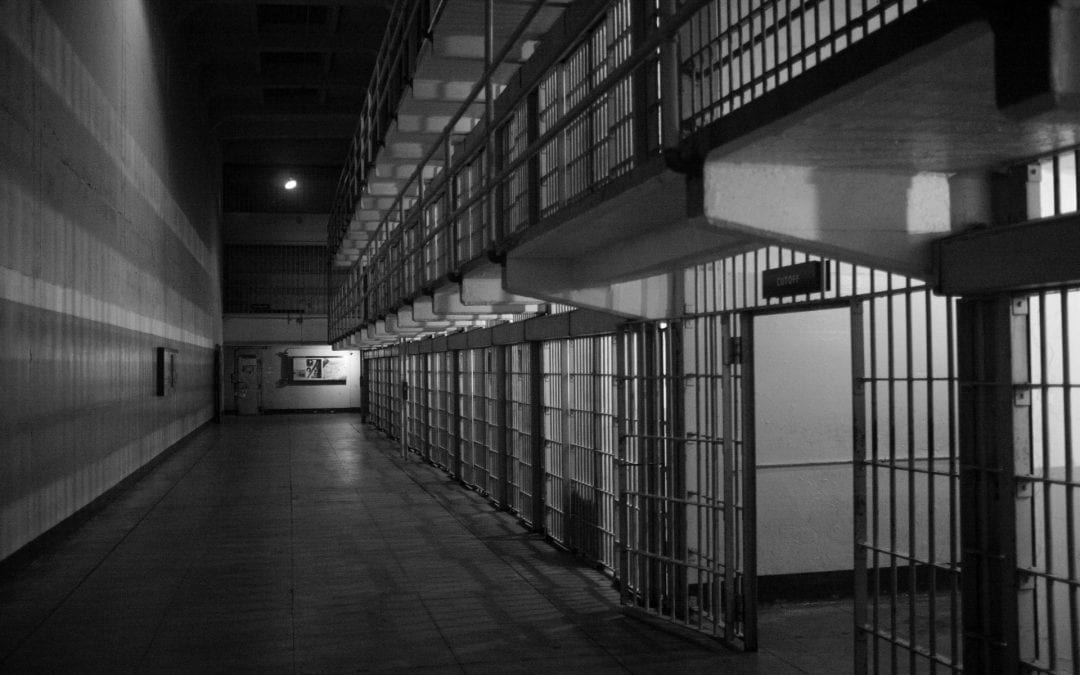What would the world be like without prisons? Julianne Evans speaks with Tracey McIntosh Co-Head of the School of Te Wananga o Waipapa, Māori Studies and Pacific Studies, in the Faculty of Arts at the University of Auckland about the state of prisons in New Zealand.
We’re refusing bail and locking more people up for longer periods of time, hence the current blow out in the country’s prison population, which stands at over 10,000.
And with plans previously approved by the last government for a new prison costing $1.5 billion, is there any hope of a different conversation about criminal justice?
Yes, says Professor Tracey McIntosh, and it’s already happening.
“We’re now talking about decarceration from a broad range of perspectives, whereas as a concept or as strategy it was, until recently, largely unknown,” she says.
A long-time advocate for prison abolition through decarceration strategies, she has taught a weekly creative writing programme at the Auckland Regional Women’s Correction Facility at Wiri every Friday for nine years. She’s also been on a range of advisory committees, including the most recent; the Department of Corrections Academic Advisory Committee with senior Corrections staff.
“We see a move in Corrections from training staff to lock people up to training then to unlock them,” she says.
“But it has to happen from the flax roots up. You can’t just tear down the prison walls without addressing critical structural issues. We have to have a movement towards it; we have a duty of care for all people.”
A problem for someone on parole or probation for example, is the incredible difficulty of finding housing.
“Homelessness is a huge issue; solving it needs to be a strategy of decarceration. People can’t be released if there’s no suitable address. Often they have conditions like non-association, or they can’t be released back to their former community or communities will not accept them being released into their community. They’ve done their time but they’re still being punished.”
Besides homelessness, structural issues which lead to social harm — a term she prefers over crime — like poverty, racism and marginalisation must be addressed.
One of the biggest barriers to prison alternatives is how established the idea of locking people up has become in people’s minds, says Tracey.
“Why is it so difficult, even preposterous, to imagine a world without prisons? Why do we take them for granted? All societies have social regulations and forms of social control. But prisons as the most dominant form of punishment, as the punishment is relatively new.”
She says the invisibility of prison life conveniently allows us to forget about the fate of the people in them, and having spent a lot of time teaching inside prisons, she’s struck by how noticeably the population fits a particular demographic.
“There is an incredibly homogenous element to prison; poor, Māori, disadvantaged. There are the occasional white, middle-class exceptions, but overwhelmingly the prison population is made up of people who have experienced cumulative disadvantage over their lifetimes.”
You ask the question of people from more privileged backgrounds ‘what can I expect from my life?’ and they might say they’ll go to university or get a job, but either way, they have confidence that things will work out alright, she says.
“But for others, many of whom I see in prisons, they have a much stronger sense of social realism, a lack of hope, which can manifest in a number of ways. For example, 75% of the women in prison have a diagnosed mental health disorder.” We have to do something better, she believes. “Something that allows people to flourish, that reduces social harm and addresses the drivers of crime.”
“New Zealand must show global leadership in this area. Prison abolition brings a broad range of perspectives, from the radical direct-action activist to those operating from a faith-based perspective. Many big social upheavals seemed overly idealistic before they happened; the end of slavery, votes for women, same sex marriage, but now they’re the norm.”
She doesn’t believe we should replace our current system with a more enlightened version of the same thing.
“We have to get away from the idea that locking people up is acceptable. A new prison is estimated to cost $1.5 billion. If we spent that money on health or education, what outcome would we get? We would expect it to make a positive difference. If you ask people if they expect a larger prison to make a positive difference, they can’t really say yes.”
Creating a world where prisons are a thing of the past, and where we have a greater sense of community safety, won’t happen overnight. We have to take the longer view, says Tracey.
“For me as Māori, one of our greatest strengths comes to a commitment to mokopunatanga: a recognition that our focus must be on the lives of our grandchildren and their grandchildren. We have to work with conviction towards a future where the shadow of the prison no longer distorts and corrupts one’s life chances, or where the inter-generational reach is so long.”
This article was originally published in the May edition of UniNEWS and was republished with permission.
Tracey McIntosh is a Professor in Maori and Pacific Studies at the University of Auckland. She is an expert in crime and extreme marginalisation and is co-author of A Land of Milk and Honey?: Making Sense of Aotearoa New Zealand.
Disclaimer: The ideas expressed in this article reflect the author’s views and not necessarily the views of The Big Q.

